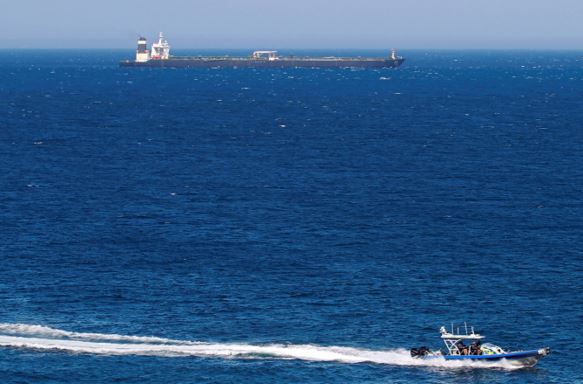At the end of the year, the European Union will ban the import of crude oil, and next year it will also ban the import of other petroleum products from Russia. But until then, oil remains an exception, so oil of Russian origin is still coming to Europe, just under different flags. One of the tankers carrying this cargo was spotted moored in the port of Koper; the name of the ship is said to be Mariner A, and it is said to be registered in Malta, reports the N1 media outlet.
After the sanctions imposed on Russia due to its military aggression against Ukraine, natural gas and oil from the former are still coming to Europe, as the European Union will ban the import of crude oil by the end of this year, and the import of other petroleum products from Russia after the 23rd of February next year. Until then, a regulation is in force that bans the import of certain goods but lists oil as an exception.
According to the N1 media outlet, the port captain at the Slovenian Maritime Administration, Vladimir Vladović, confirmed that this is oil of Russian origin being transported under a different flag. Despite the already imposed sanctions, Europe still receives certain petroleum products under the previous, pre-war agreements that were made before the war in Ukraine. Oil is a commodity that is considered an exception until the 5th of December, when the EU will ban the import of crude oil, and after the 23rd of February next year, the import of other petroleum products from Russia will also be banned (diesel is also a petroleum product).
The EU is still heavily dependent on Russian oil
Meanwhile, criticism has been levelled at the EU for being too slow in closing the way for Russian energy sources to enter the European market, thereby indirectly financing the war. However, it must also be acknowledged that individual countries are heavily dependent on Russian energy sources and, as a result, find it difficult to replace them quickly. Thus, the EU imposed an embargo on coal imports in April, and a partial embargo on Russian oil imports at the end of May, while the gas embargo is supposedly no longer on the table (but on the other hand, Russia’s Gazprom itself has reduced supplies to various countries). There is no data on how much Russian oil comes to Slovenia, but it is said to be among the smaller importers of Russian oil to the EU. According to Eurostat, it imported 100 million euros last year, the N1 media outlet writes. According to CREA, Russian oil is still being bought by oil giants such as Exxon, Shell and Total. As already mentioned, the embargo will take effect at the end of the year or in February next year.
Tanja Brkić


